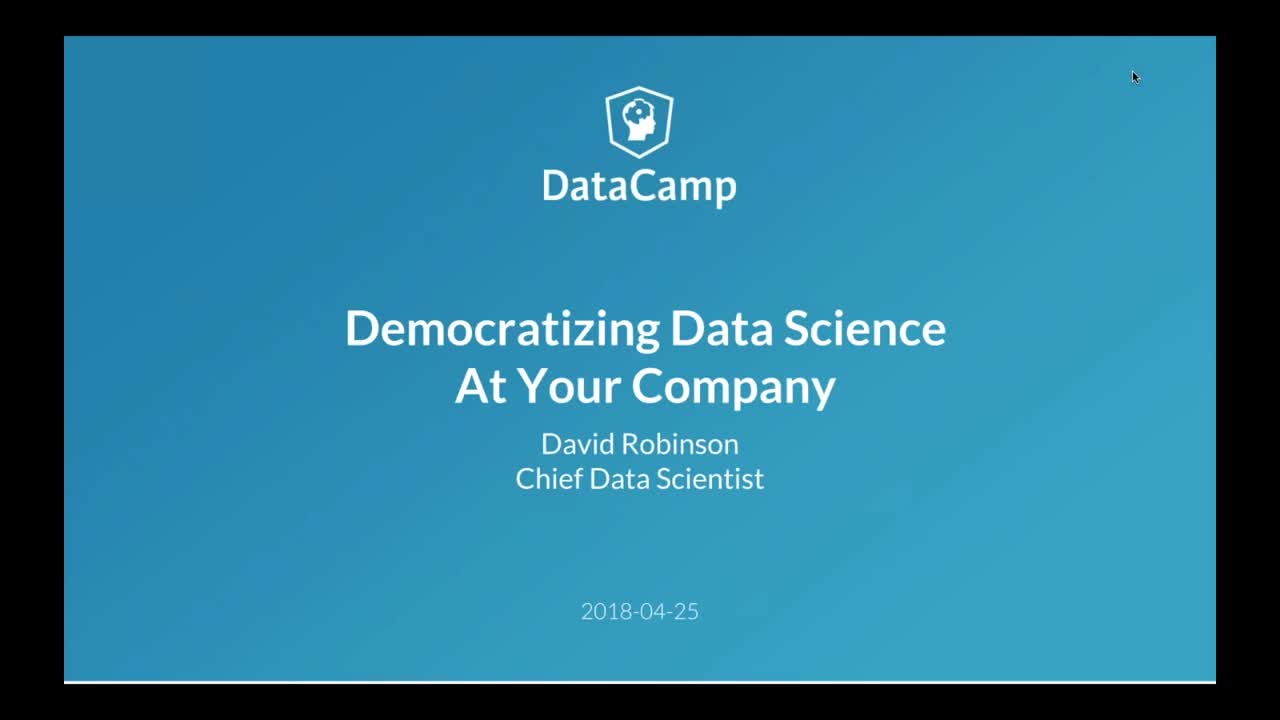Pular para o conteúdo principalSaiba Mais





Falantes
Treinar 2 ou mais pessoas?
Obtenha acesso à biblioteca completa do DataCamp, com relatórios, atribuições, projetos e muito mais centralizadosRelacionado
webinar
Scaling Data Science At Your Organization - Part 2
Scaling and democratizing data science relies on infrastructure and tools.webinar
Democratizing Data in Government Agencies
Get specific, actionable best practices for data democratization in government.webinar
Scaling Data Science At Your Organization - Part 3
Learn how to organize your data science team to scale effectively.webinar
How Data Governance Enables Scalable Data Science
Learn how data governance enables data democratization and higher trust in datawebinar
Fostering Confidence with Data Across Your Organization
Learn how to empower your entire organization with data literacy.webinar
Avoiding Pitfalls in Data Democratization
Learn how to avoid pitfalls in democratizing data, such as lack of data cultureJoin 5000+ companies and 80% of the Fortune 1000 who use DataCamp to upskill their teams.
Loved by thousands of companies

